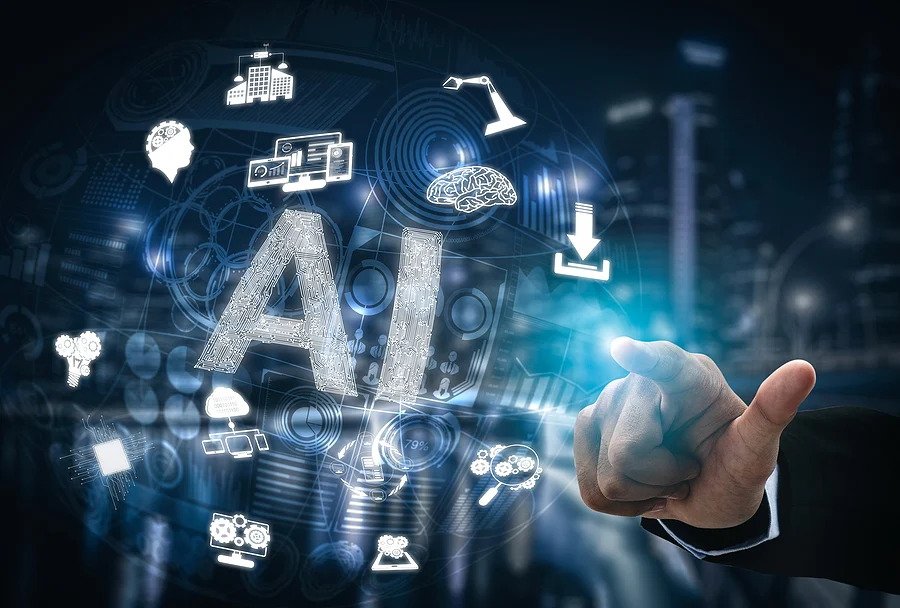Today, artificial intelligence (AI) is everywhere, from our homes to workplaces. It has captured the collective imagination, promising solutions to complex problems and revolutionizing industries. However, AI’s limitations and its unintended consequences cannot be overlooked.
Chris Hood, in his thought-provoking book Infailible: The Artificial Intelligence Ideology Reshaping Consumer Behavior, delves deep into the often-overlooked dark side of artificial intelligence. He sheds light on how the illusion of AI’s infallibility can blind us to the significant risks it poses—not just to human intelligence but also to the very fabric of our future society.
As AI continues to integrate into every aspect of our lives, from decision-making to consumer behavior, it is crucial to question its perceived perfection. The unchecked expansion of AI-driven systems can lead to unintended consequences, including ethical dilemmas, loss of human autonomy, and potential biases embedded within algorithms.
This blog will critically analyze the dangers associated with the infailible ideology, exposing why it is essential to break the myth of AI’s perfection. By understanding these risks, we can work towards a more balanced, responsible, and ethical approach to artificial intelligence.
The Illusion of AI’s Superiority
According to Hood, the widespread perception of AI as a flawless and infallible technology largely stems from how it is portrayed in the media. It is often marketed as a revolutionary force capable of seamlessly replacing human intelligence, a notion that is far removed from reality. The media, along with tech companies, frequently present AI as a magical solution to all problems, reinforcing the illusion that it can function independently without human oversight. However, this perception is misleading. AI, at its core, is a tool—one that is only as effective as the data it is trained on. Its outputs and decision-making processes are shaped by human biases, errors, and inherent limitations in the datasets it relies upon. Therefore, rather than being an omnipotent force, AI remains an extension of human intelligence, carrying both its strengths and flaws.
When it comes to consumer behavior, AI’s role is multifaceted and more intricate than it appears on the surface. On one hand, it provides businesses with powerful tools for personalization, predictive analytics, and customer engagement. These capabilities allow companies to tailor experiences, recommend products, and optimize marketing strategies with unprecedented precision. However, on the other hand, AI-driven automation and decision-making can create unintended consequences, such as depersonalization and customer alienation. Hood highlights how many businesses become so focused on AI’s potential to streamline operations and boost efficiency that they fail to consider its real impact on consumers. This overemphasis on AI-driven solutions often leads to disillusionment when customers realize that the promised seamless experiences are flawed, impersonal, or even intrusive. Rather than blindly relying on AI, businesses must strike a balance between technological innovation and genuine human interaction to foster trust and long-term customer relationships.
Degenerative AI: When Progress Regresses
One of the most compelling discussions in Infailible is the rise of what Chris Hood calls “degenerative AI.” This term refers to the gradual decline in creativity, accuracy, and meaningful insights when artificial intelligence systems continuously rely on low-quality, outdated, or biased data. As AI becomes more pervasive in content creation, automation, and decision-making, its reliance on machine-generated outputs rather than human-curated knowledge poses significant risks. Hood highlights a critical issue: the increasing prevalence of AI-generated content being fed back into training datasets, creating a self-reinforcing feedback loop that amplifies misinformation, inaccuracies, and a lack of originality. This phenomenon not only diminishes AI’s value over time but also raises serious ethical concerns regarding its long-term impact on the integrity of information. If left unchecked, degenerative AI could erode trust in digital content, limit creative diversity, and contribute to a world where misinformation spreads faster than ever. Thus, it is crucial to acknowledge these risks and develop strategies to ensure AI remains a tool for progress rather than a mechanism that accelerates intellectual decline.
The Hype Cycle and Consumer Skepticism
The hype surrounding artificial intelligence is not a recent development; it has been building for decades. Hood draws insightful parallels between the current AI gold rush and past technological bubbles, such as the dot-com boom and the cryptocurrency frenzy, where inflated expectations often led to financial crashes and widespread disillusionment. Many companies eagerly embrace AI without fully understanding its capabilities, limitations, or the ethical considerations involved. This shortsighted approach can result in significant financial losses, operational inefficiencies, and long-term damage to brand reputations.
Furthermore, studies cited in Infailible reveal a surprising trend—mentioning AI in product descriptions can actually decrease consumer trust, particularly in industries where accuracy, reliability, and human oversight are critical, such as healthcare, finance, and legal services. Consumers often perceive AI as impersonal or prone to errors, leading to heightened skepticism and reluctance to adopt AI-driven solutions. This growing distrust highlights the urgent need for companies to prioritize transparency, ethical implementation, and a customer-first mindset when integrating AI into their products and services.
Breaking the ‘Infailible’ Mindset
Businesses must adopt a more nuanced perspective when it comes to AI. Hood advocates for a balanced approach that prioritizes customer aspirations over technological capabilities. This involves leveraging AI as a tool and not as a replacement for human intelligence, creativity, and empathy.
Key strategies include:
- Focusing on Aspirations: Understanding what customers truly value and aligning AI strategies with their long-term goals.
- Ensuring Transparency: Clearly communicating the role of AI in products and services to build trust.
- Avoiding Overreliance: Using AI to enhance, rather than replace, human judgment and decision-making.
Embracing Imperfection
Let’s move beyond the hype and embrace a future where AI is a partner, not a panacea. Grab your copy of Chris Hood’s Infailible now.



